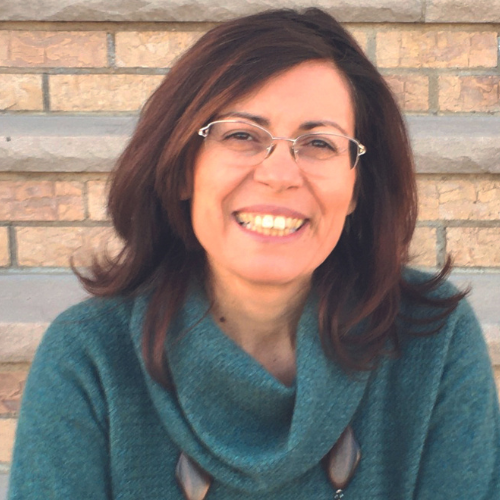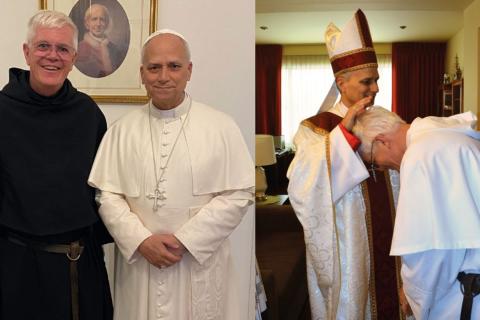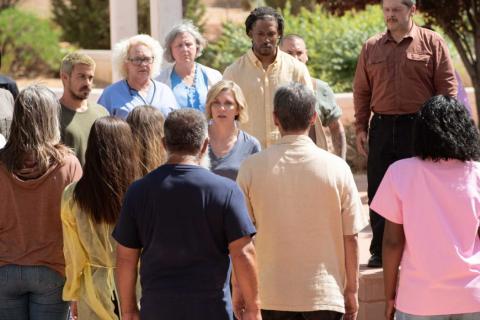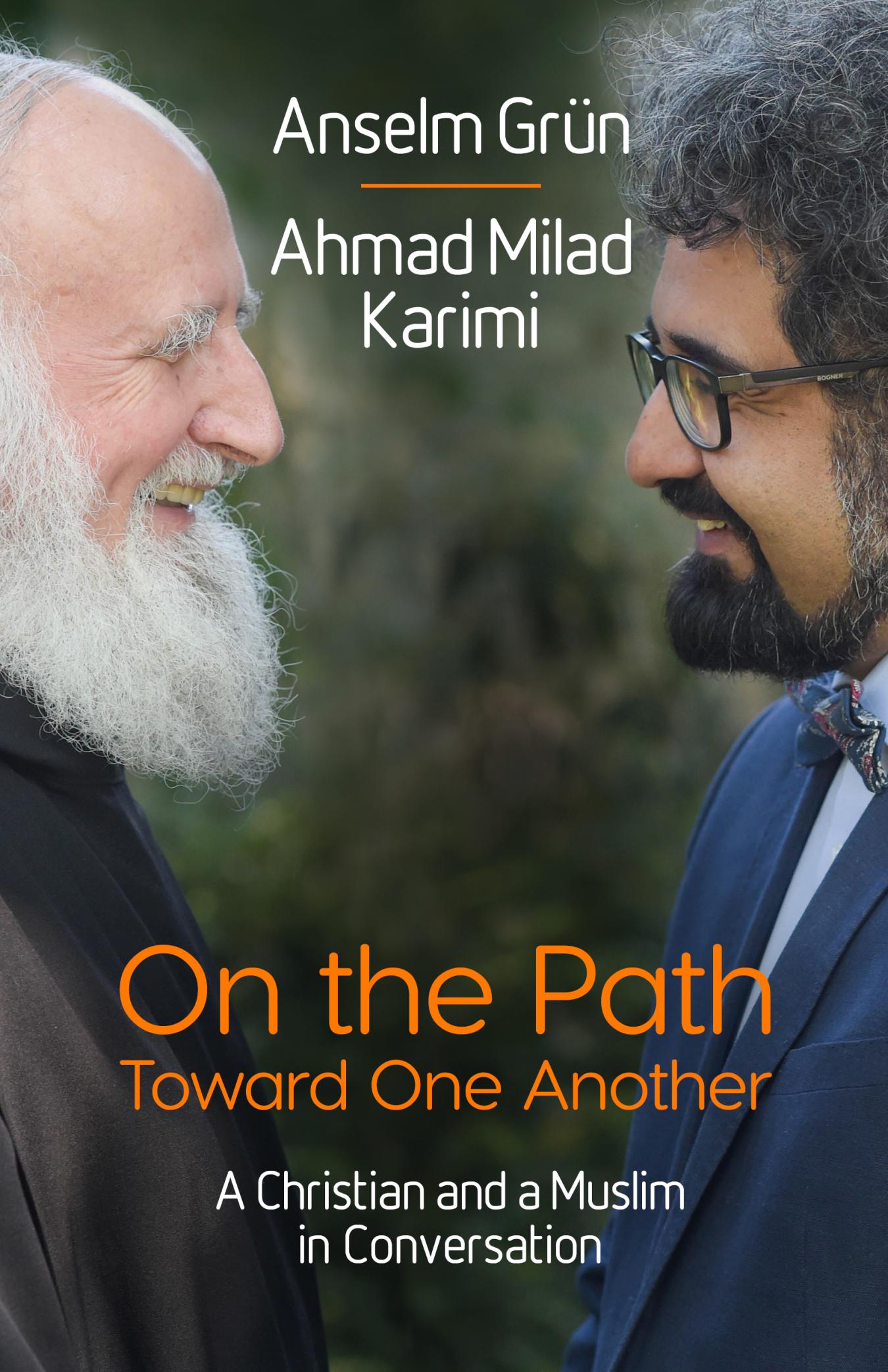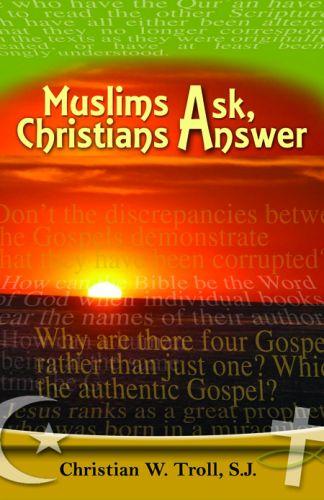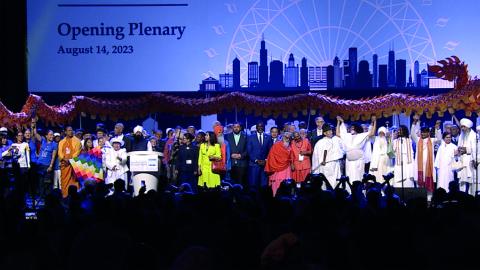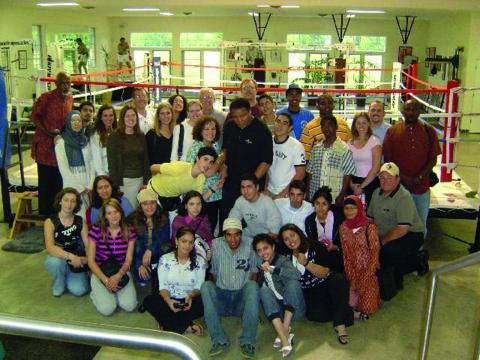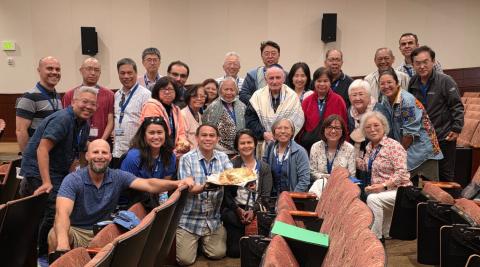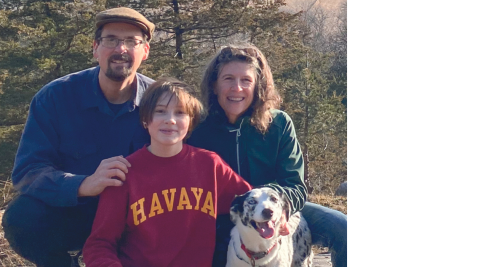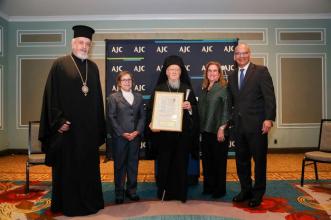
Photo by Citta Nouva
“Friendship,” “friend,” “friendly.” These are the words that recur most when meeting His All-Holiness Ecumenical Patriarch Bartholomew I. He is a man of God, a friend of humanity.
Patriarch Bartholomew has been the spiritual leader of Eastern Orthodox Christianity since 1991 and an exemplar of religious leadership for people of all faiths.
In October 2020, his visit to Pope Francis in Rome was an example of his leadership of unity and harmony. Once again, he shared their common commitment to addressing crucial issues of the human family, including the care of creation, the education of future generations, interreligious dialogue and the pursuit of peace
In the name of friendship, in 2008, Bartholomew travelled to Rome to visit Chiara Lubich, Focolare’s founder, when she was hospitalized a few weeks before her death.
A long history of friendship, also, lies behind the American Jewish Committee’s Human Dignity Award, which honored the patriarch during his pastoral visit to the Orthodox communities in the U.S. in November.
The AJC is a global Jewish advocacy engaged in interreligious dialogue, and a founding member of the formal dialogue between Orthodox Christian and Jewish leadership, which began in Lucerne, Switzerland in March 1977.
During a third conference on dialogue held in Athens in 1993, Patriarch Bartholomew sent a message enlightening the common spiritual origin of Christians and Jews: a fruitful ground toward the rejection of the consequences of mutual hostility.
When on September 11, 2001, the tragic terrorist attack on the World Trade Center killed thousands and destroyed the Greek Orthodox St. Nicholas Church, members of AJC stepped forward and immediately contributed to its rebuilding.
Some representatives of AJC were present November 2, when Patriarch Bartholomew led the Orthodox Thyranoixia, the opening doors ceremony for the new Church, now a national shrine in the U.S.
Moreover, on November 15, 2003, when several terrorist attacks hit two synagogues in Istanbul, Turkey, killing 25 people, the patriarch showed his deep solidarity and compassion. At that moment of fragility and suffering, he joined the Jewish community at the reopening ceremony of the central synagogue of the city.
“The patriarch’s presence strengthened our people, demonstrating religious solidarity and action,” remembered Rabbi Noam Marans, AJC Director of Interreligious and Intergroup Relations, as he introduced the award. “It was an act of compassion we will never forget. It is emblematic of the deep care for all humanity that all holiness represents, and why we honor the patriarch today.”
The Human Dignity Award is a facsimile leaf of Genesis chapter 1 in the Kennicott Bible, the lavish Hebrew Bible that survived from medieval Spain, before the expulsion of the Jews in 1492. Combining Jewish, Christian, and Islamic artistic motifs, this Bible symbolically captures the spirit of interreligious relations with Ecumenical Patriarch Bartholomew, exemplifying his dedication to protect human dignity and the environment.
“Reflecting on the title of today’s award, we are reminded of our common Biblical understanding of what it means to be created in God’s image, and that our dignity as human beings depends on the sacredness of God’s image in us,” said the patriarch during his acceptance speech.
Explaining that “the Imago Dei” became the seed of God’s love for the entire world, Bartholomew added: “If this human dignity comes from our understanding of God’s image within each of us, how much truer should it be that we embrace and care for our fellow human beings? We should be deeply inspired by a sense of the sacred that encompasses the entire creation.”
Martin Luther King Jr’s words about the light that drives away the darkness inspired the patriarch’s final words on the methodology to extinguish hate.
“Only love can do that: to fight anti-Semitism, hatred, and discrimination of all kinds. We all need to be involved. The role of education and family is very important indeed.
“But religious communities also have a key role to play in eradicating racism, xenophobia and anti-Semitism,” said Bartholomew, fully aware that “in the midst of tragedy and challenges, God stands ready to rekindle every heart that is broken.”


